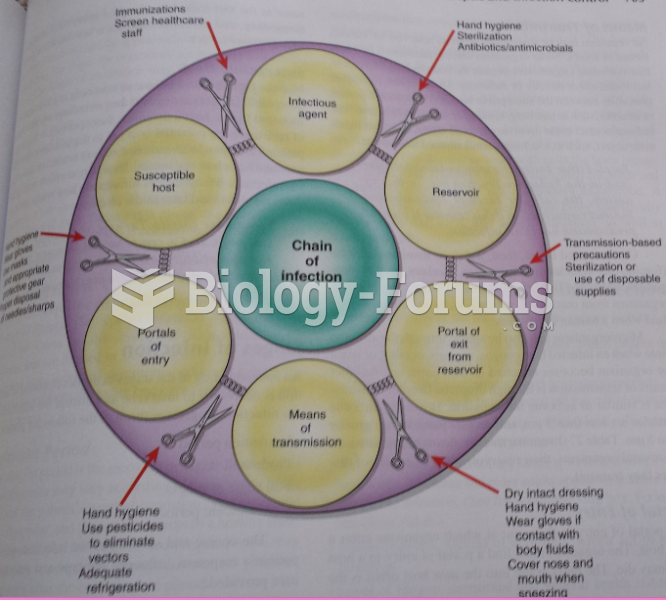|
|
|
Certain topical medications such as clotrimazole and betamethasone are not approved for use in children younger than 12 years of age. They must be used very cautiously, as directed by a doctor, to treat any child. Children have a much greater response to topical steroid medications.
Patients who have undergone chemotherapy for the treatment of cancer often complain of a lack of mental focus; memory loss; and a general diminution in abilities such as multitasking, attention span, and general mental agility.
Drugs are in development that may cure asthma and hay fever once and for all. They target leukotrienes, which are known to cause tightening of the air passages in the lungs and increase mucus productions in nasal passages.
The word drug comes from the Dutch word droog (meaning "dry"). For centuries, most drugs came from dried plants, hence the name.
The U.S. Preventive Services Task Force recommends that all women age 65 years of age or older should be screened with bone densitometry.
 Varicella or chickenpox, a viral skin infection. In this photograph, the rash is beginning to form s
Varicella or chickenpox, a viral skin infection. In this photograph, the rash is beginning to form s
 Otitis media. This illustration shows an inflamed tympanic cavity, which is the most common source o
Otitis media. This illustration shows an inflamed tympanic cavity, which is the most common source o





